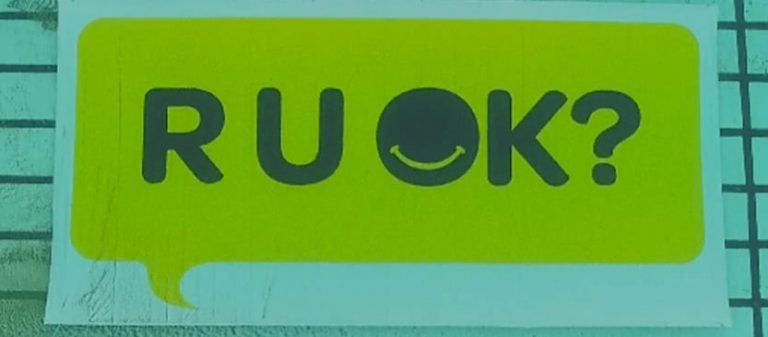Hi there. Are you okay?
If not, that’s quite alright. But you should tell somebody that you aren’t okay. You should seek help from loved ones, professionals, kindly colleagues, or anyone who can help lighten the burden. Email me if you like. It’s a very common problem, and it can be a temporary one.
Life is hard, chemicals are unreliable, and the brain is a bent, flawed computer which often malfunctions. Depression, despair, and suicidal thoughts don’t discriminate. As this year’s spate of tragic suicides in the music industry demonstrates, you can be at the top of your game — rich, respected, successful, and loved — and it still doesn’t solve the fundamental problem. Often an outwardly successful life can exacerbate the issue – if everything is in its right place, and you still feel terrible, then, as Liz Phair once wrote, “you know that the problem is you.” Or you feel that it is, anyway.
If you are okay, this is great news.
It is also temporary news, because soon you may not be. Depression is a fog that can engulf without warning, but knowing and recognising this is important. Feelings are transitory. This is also important. But, if you are okay, ask those around you if they are. Maybe they are. Great. Maybe they aren’t. Maybe they are dragging around an invisible boulder so heavy and tiresome they cannot foresee a time when they won’t be.
You can help them just by listening. By talking. By suggesting they get help. By letting them know they aren’t alone, that mental illness, depression and all its ugly cousins are alarmingly common. You aren’t alone in these feelings, although depression can feel like the most singular experience in the world.
Morrissey once said “It’s easy to laugh, it’s easy to hate. It takes guts to be gentle and kind.” It can also be the easiest thing in the world. It’s certainly among the most important.
Love Music?
Get your daily dose of metal, rock, indie, pop, and everything else in between.
As Ben Lee so succinctly put it this morning: “This year in the music industry, like so many other years, there have been so many tragic losses – so many wonderful, tender, artistic souls that have been lost to isolation and depression. Friends, community – reach out to those around you, CONNECT, start conversations and ask R U OK? It could save someone’s life!”
So if you aren’t OK, tell someone, anybody. You’ll be surprised how much people care and want to help – if you let them. It’s a privilege to help someone through a hard time. So, if you aren’t feeling OK, give someone this privilege. I promise they will treat it as such. Then, once you are OK, pay it forward. Not just on RU OK DAY, but every day, any day.
If you are lucky enough to be OK at this very moment, cherish it. And use your strength to help someone else push the boulder up the hill – hopefully it’ll tip over the apex, roll out of sight and smash into a million tiny pebbles. And anyone can crush a pebble into the ground.
Visit the RU OK website for more information.
If you need help right now, contact Lifeline on 13 11 14 or visit the website.

































